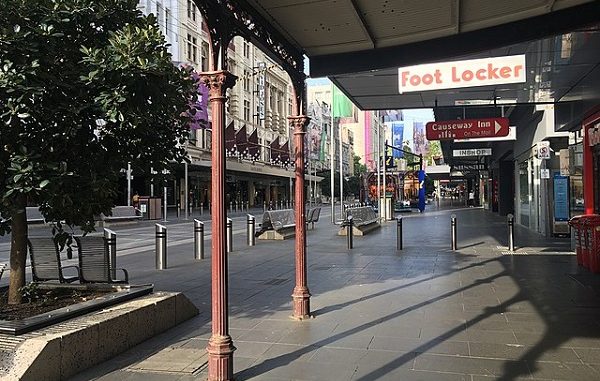
On 12 February 2021 news quickly spread that Victoria state, Australia, was once again heading into pandemic lockdown. Like Groundhog Day, the lockdown was required due to the failures of the Daniel Andrews’ (Labor Party Premier of Victoria) hotel quarantine regime. While Victorians hope this does not result in the third wave of infections, the outbreak lays bare the twin disease of casualisation and cuts to the public service. These issues are not peculiar to Victoria and if a sustainable ‘Covid-normal’ is ever going to be brought about it will require a properly staffed public sector and an end to the insecure poverty of casual work.
When the virus initially emerged in Victoria, the response was poor and the cooperation with other state governments and the Commonwealth governments was even worse. Successive state governments have cut the health department to the bone so that when the pandemic hit the medical system was woefully insufficient to respond. These issues were further compounded as the hotel quarantine regime was developed. In line with the normalisation of outsourcing government services, the decision to utilise private security firms staffed with casual labour was made without question. In fact, there is no record of who made the decision.
This quickly led to the failure of the hotel quarantine system resulting in the largest spread of Covid-19 on Australian soil to date and a prolonged lockdown. The Victorian Government quickly established an inquiry into the issues with the hotel quarantine debacle. The role of the inquiry was twofold. While the inquiry was active, Andrews was able to sidestep any difficult questions arising at his daily press briefings. It also delayed any action until the heat had gone out of the issue. Unsurprisingly, the main outcome of the inquiry was the identification of a scapegoat in Jenny Mikakos, the Health Minister. The real price was to be paid by ordinary Victorians who were plunged into lockdown as the virus spread through the community.
In line with other parts of the world, the five councils with the highest number of Covid cases were all in the top 10 most disadvantaged councils in Victoria. These councils all report an above-average proportion of people in insecure work. While platitudes such as, “we are all in this together” abound, in reality, the virus does discriminate, and the figures show it.
The latest Victorian outbreak has been put down to the UK-variant of the virus, with the government laying blame at the feet of this more transmissible strain. While reports from around the world do indicate that the UK variant is more contagious, this is a strawman argument put up to distract from the government’s inability to properly manage its quarantine system. Australia has a unique advantage over other parts of the world in managing our response to Covid. While countries across Asia and Europe share land borders that are more difficult to manage, Australia is an island nation with the ability to effectively quarantine people entering the country. Despite the geographical head start, Australia’s hotel quarantine system is failing and leaks becoming more frequent.
Aerosol transmission
In Sydney, a case emerged of a person testing positive for the virus two days after leaving quarantine. It appears likely they became infected while staying in hotel quarantine. The new outbreak in Melbourne appears to be due to aerosol transmission within hotel quarantine. Experts are now questioning if the current hotel quarantine system is up to scratch. Western Australia recently went into a snap lockdown as a result of a hotel quarantine worker testing positive.
Aerosol transmission has not been taken seriously as a transmission path until recently. Many of the hotels utilised for hotel quarantine are not able to adequately control ventilation to prevent the spread of the virus. Despite this issue being raised for some time, the government has been extremely resistant to respond to the risks of aerosol transmission. Workers in quarantine hotels are also more likely to work multiple jobs due to low pay thus enhancing the likelihood of community spread.
A socialist response to the crisis would put responsibility for quarantine in the hands of a joint committee of workers, specialists, and community members. This should include workers from the healthcare sector, those working in quarantine, and scientists with relevant experience. Further, a socialist response would address wider issues such as casualisation, would properly resource the public sector, and would ensure that the vulnerable and low-paid do not bear the brunt of this crisis.
